Connecting Dropbox
editConnecting Dropbox
editDropbox is a cloud-based storage service for organizations of all sizes, allowing teams to create, store, share and automatically synchonize documents across desktop, web and mobile. The Dropbox connector provided with Workplace Search automatically captures, syncs and indexes the following items:
Stored Files |
Including ID, File Metadata, File Content, Updated by, and timestamps |
Configuring the Dropbox Connector
editConfiguring the Dropbox connector is the first step prior to connecting the Dropbox service to Workplace Search, and requires that you create an OAuth App from the Dropbox platform. To get started, first log in to Dropbox and access your administrative dashboard:
Step 1. Login to Dropbox’s App Developer Portal.
Step 2. Click the Create app button:

You should see the Create a new app form.
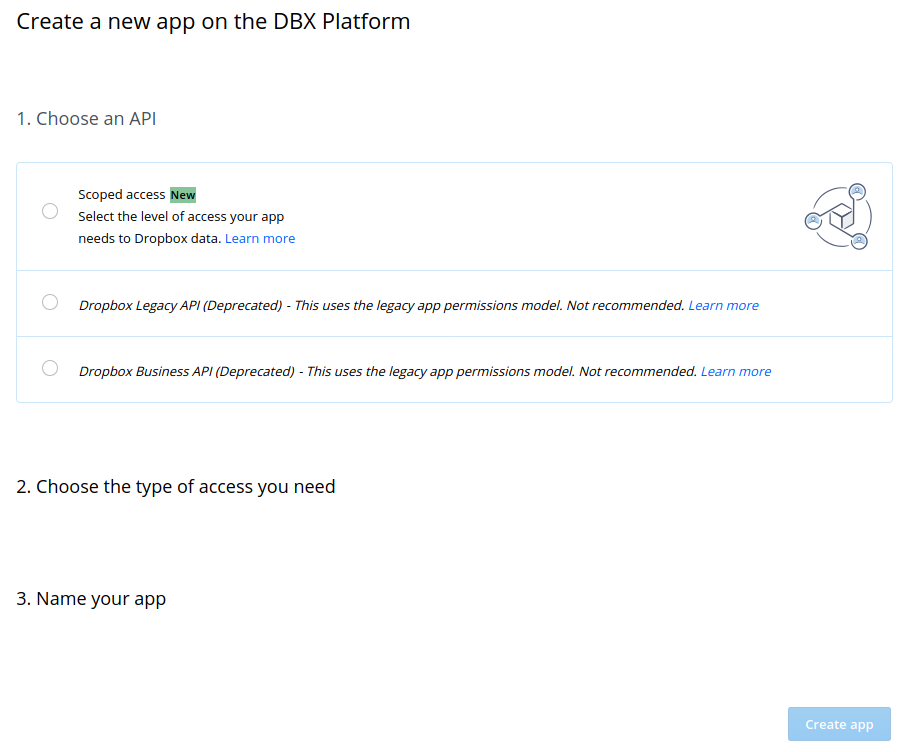
Before we create a new app, there are two important things to understand:
- The app can stay in Developer Mode. You do not need to publish it.
- Make sure that you create this app with a trusted and stable Dropbox account.
Creating an app with a team-owned account is recommended, should the configuration evolve over time.
Step 3. Choose Scoped access and Full Dropbox, and enter a name in the Name your app field. The name must be unique within Dropbox (e.g. Organization Name Workplace Search).
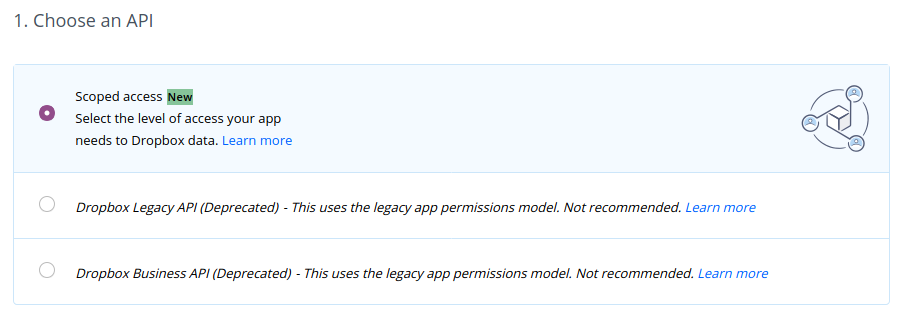


Step 4. Choose create app to submit the Create a new app form.

Your app is created, and you should now see the Settings form.
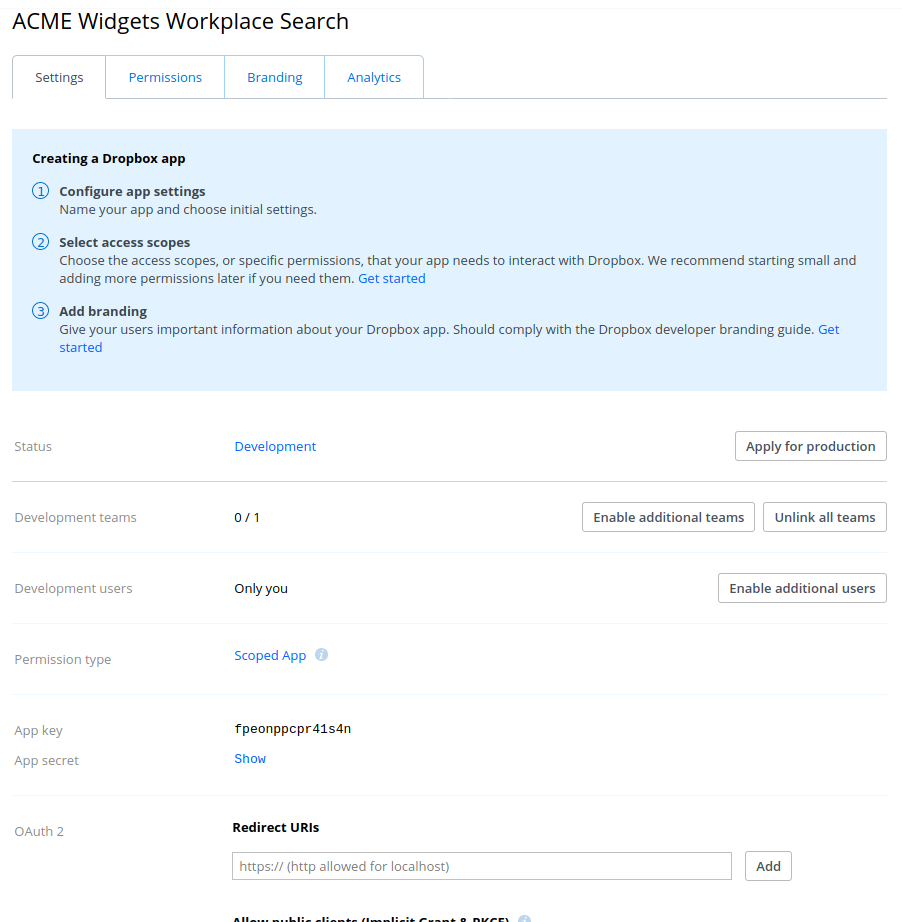
Step 5. Within OAuth 2 and Redirect URIs, add the following two redirect URIs, substituting <WS_BASE_URL> with the base URL at which Workplace Search is hosted (scheme + host, no path).
<WS_BASE_URL>/ws/org/sources/dropbox/create <WS_BASE_URL>/ws/sources/dropbox/create
Examples:
# Deployment using a custom domain name https://www.example.com/ws/org/sources/dropbox/create https://www.example.com/ws/sources/dropbox/create # Deployment using a default Elastic Cloud domain name https://8905d44eb30e4d56a1acc41bde14c847.ent-search.us-east-1.aws.cloud.es.io/ws/org/sources/dropbox/create https://8905d44eb30e4d56a1acc41bde14c847.ent-search.us-east-1.aws.cloud.es.io/ws/sources/dropbox/create # Unsecured local development environment http://localhost:3002/ws/org/sources/dropbox/create http://localhost:3002/ws/sources/dropbox/create
Choose Add to save each URL.

Step 6. Reveal the App Key and App Secret and keep them in a secure and handy location: they will be required shortly.

Step 7. Choose Permissions to change to the Permissions form.
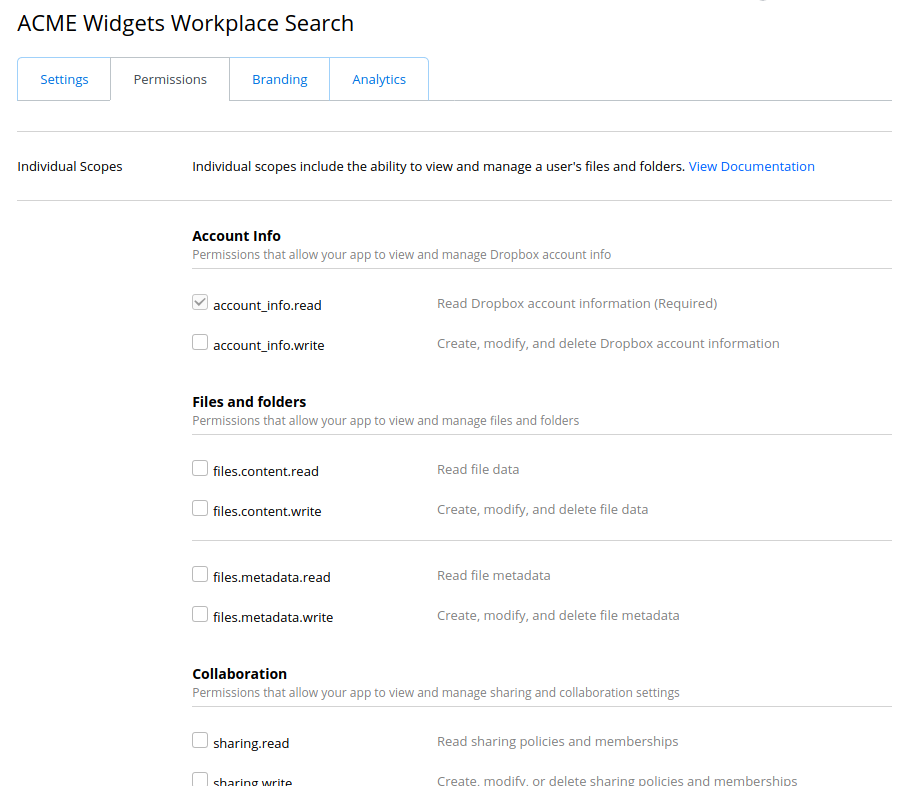
Choose files.content.read and sharing.read.
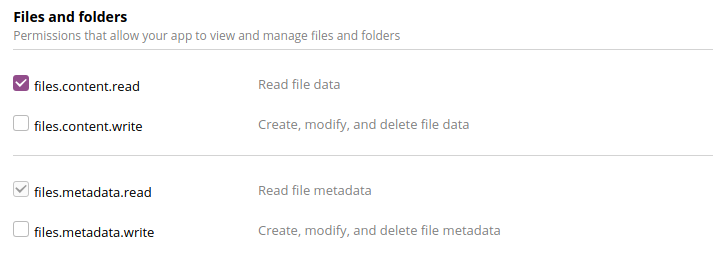

Choose Submit to save your changes within the Permissions form.

Step 8. From the Workplace Search administrative dashboard’s Sources area, locate Dropbox, click Configure and provide both the Client ID and Client Secret.
App Key and App Secret correspond to Client ID and Client Secret, respectively.
Voilà! The Dropbox connector is now configured, and ready to be used to synchronize content. In order to capture data, you must now connect a Dropbox instance with the adequate authentication credentials.
Connecting Dropbox to Workplace Search
editOnce the Dropbox connector has been configured, you may connect a Dropbox instance to your organization.
Step 1. Head to your organization’s Workplace Search administrative dashboard, and locate the Sources tab.
Step 2. Click Add a new source.
Step 3. Select Dropbox in the Configured Sources list, and follow the Dropbox authentication flow as presented.
Step 4. Upon the successful authentication flow, you will be redirected to Workplace Search.
Dropbox content will now be captured and will be ready for search gradually as it is synced. Once successfully configured and connected, the Dropbox synchronization automatically occurs every 2 hours.